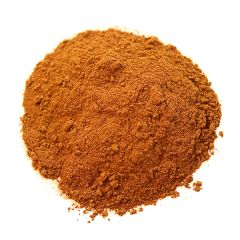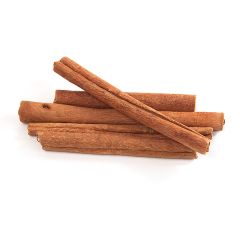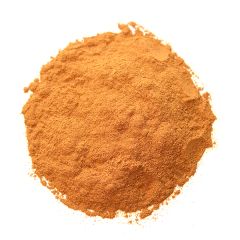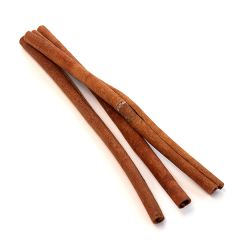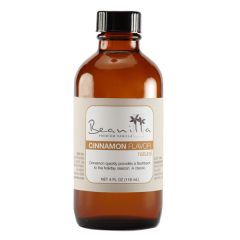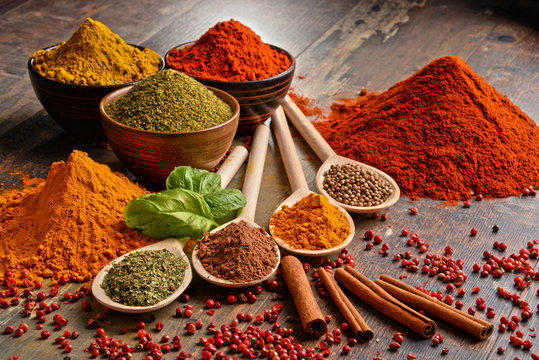- Home
- Baking Ingredients
- Cinnamon

Cinnamon
Cinnamon. It's used in so many things, from cooking and baking to potpourri and moth repellent! (Yes, seriously.) In the UK, studies have even found that consistent cinnamon in a diet can help with diabetes and blood pressure complications. Other studies have found that cinnamon can be used to clear cognitive function, reduce cholesterol, and even aid in weight loss.
Savory. Sweet. Scintillating. The cured inner bark of the Cinnamomum genus of trees is one of the most dazzling spices in the food world.
- Cinnamon, CeylonOut of stock
- Cassia Bark (Cinnamon)Out of stock
Most Popular Products In This Category
Types of Cinnamon
No matter what YOU use cinnamon for, there are plenty of cinnamon varieties out there to widen your horizons! And that brings me to my question...
Would the real cinnamon please stand up? With so many cinnamon varieties in the marketplace, how do we know what “real” cinnamon is and what the differences are between each cinnamon variety? We’ve broken out the three most common types of cinnamon and highlighted their features so you don’t have to wonder anymore!
Ceylon Cinnamon
Ceylon cinnamon is considered “true” cinnamon. The variety is grown primarily in Ceylon, which was the British Crown colony of present-day Sri Lanka between 1815 and 1948. Ceylon is lighter in color, has a less pungent flavor, and tends to have a light and bright citrus flavor profile. It is the perfect cinnamon to use in delicately flavored desserts and savory dishes.
Korintje Cinnamon
Kortintje cinnamon is considered a cassia cinnamon. Grown primarily in Indonesia, it is one of the most imported cinnamons to the United States. The flavor is spicy and pungent due to its high volatile oil content of 7-8%. This cinnamon is primarily used in commercial applications due to its bold but smooth flavor and relatively low cost. We carry ground, bark, and whole stick form of this cinnamon. Bark and cinnamon sticks are perfect for infusing flavor into both sweet and savory dishes and hot drinks. Cinnamon bark is also useful in potpourris and sachets.
Vietnamese Cinnamon
Vietnamese cinnamon or Saigon cinnamon is closely related to Chinese cinnamon. It is darker in color and has the most pungent flavor of all the cinnamon varieties. The very high oil content (1-5%) and 25% in cinnamaldehyde, which is its essential oil, give the cinnamon a very spicy and aromatic flavor. Each time I open up Saigon cinnamon I instantly think of red-hot candies. This cinnamon is amazingly fragrant. Perfect for dishes where you want the cinnamon to be the star!
Oh, cinnamon. Beloved in cuisines worldwide it makes our curries warm, ensures our ham glazes are addictive, and keeps pilafs perky. (And let’s not even get into its importance in pumpkin spice everything.)
Even better? Cinnamon has so many health benefits!
Health Benefits of Cinnamon
Cinnamon Has Anti-Inflammatory Properties
Too much chronic inflammation can cause the body to feel pain, move slowly, or swell uncontrollably. Cinnamon has been shown to help with inflammation when applied as an oil or cream.
Cinnamon May Help Fight HIV
In a study looking at 69 plant species, 16 were effective in inhibiting viral replication, but cinnamon proved to be the most effective! Further studies need to be done, but this early research shows that certain chemicals present in cinnamon could be used to slow down viral infection of white blood cells when used with other forms of drug treatment.
Cinnamon Has Tons of Antioxidants
Your body utilizes antioxidants to combat the threat of substances that steal electrons from cells, DNA, and proteins. When these electrons are lost (a process called oxidation) the cell, DNA, or protein can no longer function properly. Cinnamon provides plenty of antioxidants giving your body extra electrons that keep the body happy and functioning.
Cinnamon Helps with Insulin Sensitivity
Those suffering from Type 2 diabetes often have problems with insulin resistance. In a double-blind placebo-controlled study scientists saw that glucose, insulin, cholesterol and HbA1c sensitivity improved in patients with Type 2 diabetes when cinnamon-based compounds were introduced in the diet via supplements.
Of course, cinnamon isn’t a total panacea. No spice is. However, what these research studies show is that having a bit of cinnamon in your diet will help keep you in better health as well as make your food all the more flavorful.
As you can see there is a great selection of cinnamon both ground and whole available in the marketplace. Each cinnamon has a distinct flavor profile, can be used in many different applications and have varied degrees of health benefits.



